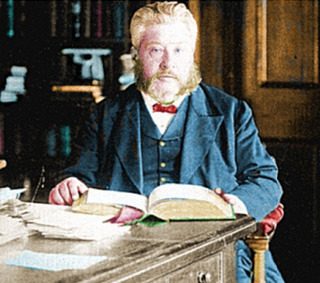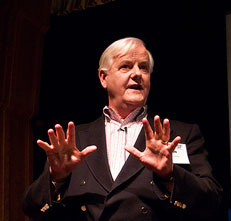Randy Alcorn's Blog, page 218
February 3, 2012
Christians and Politics?
The question of, “How much attention should Christians give to politics?” is an interesting one. I share some thoughts in the following video, and in the transcript below.
Writing about the political structure of society, Paul says in Romans 13:1-3:
Everyone must submit himself to governing authorities, for there is no authority except that which God has established. The authorities that exist have been established by God. Consequently, whoever rebels against the authority is rebelling against what God has instituted, and those who do so will bring judgment on themselves. For rulers hold no terror for those who do right, but for those who do wrong.
Paul writes within the context of first-century Roman government. In his day, the average Roman citizen had some voice in politics—not much—but for the most part, government worked from the top down.
 Today, in America and many other western nations, republics operate on a more democratic level. People are allowed and even encouraged to get involved and make a difference. So I certainly think that the more opportunity we have to make a difference, the more seriously we should consider doing what we can to make a difference. Voting is one easy way Christians can take advantage of their ability to influence the direction of our country.
Today, in America and many other western nations, republics operate on a more democratic level. People are allowed and even encouraged to get involved and make a difference. So I certainly think that the more opportunity we have to make a difference, the more seriously we should consider doing what we can to make a difference. Voting is one easy way Christians can take advantage of their ability to influence the direction of our country.
I am grateful for those Christians who are called to be legislators, judges, and otherwise involved in the political arena. I am also in favor of people—in the right context—protesting injustice. I was involved in civil disobedience and went to jail for protesting abortions at abortion clinics. But this was less a protest than an intervention on behalf of unborn children who were being killed. I wanted to do what I could to keep more children from dying.
On the other hand, Christians often turn politics into something too important. They start with bumper stickers, lawn signs and listening endlessly to talk radio. Soon they equate being a Republican with being a Christian, or being a Democrat with believing Christians should follow certain liberal agendas, depending on their different perspectives.
Some people think all Christians should be conservative. Some people think all Christians should be liberal. This flawed thinking divides Christians from each other.
I believe all Christians should be biblical. Sometimes the Bible teaches concepts that are by nature conservative. In those cases we should be conservative. Sometimes, however, the Bible teaches principles which by nature are liberal. In those cases we should be liberal.
So instead of determining in advance, “I’m conservative” or “I’m liberal,” we just need to say, “I’m a Christian. I want to be true to Scripture.” Practically speaking, in certain arenas, I’m going to end up looking conservative. For example, I believe abortion is wrong and it is frequently conservatives who agree with that. Usually, liberals will be in favor of abortion rights, and they will be “pro-choice.” Regardless of what Democrats or Republicans believe, my belief that abortion is wrong is based on the Bible, which is supported also by the scientific evidence. I believe that because God hates the shedding of innocent blood, and has a special love for children, abortion is the single most important issue facing this country.
Just as abortion is seen as a conservative cause, what about concern for the environment, which is typically viewed as a liberal cause? Read Genesis 1 and 2. God has clearly given the human race stewardship over creation.
Call it “creation care.” Call it “environmental responsibility.” But whatever you call it, reasonable steps should be taken to recognize the legitimacy of utilizing natural resources, while protecting our environment for the sake of our grandchildren and great grandchildren. We have a God-given mandate to defend our world from the horrors of man-made crises like oil spills and their resulting decimation of the animal kingdom, and their effects on the health of people. We need to take reasonable care to see that ecosystems are not destroyed.
Yes, we are going to disagree as Christians on what is reasonable and what is not reasonable. And I will admit that despite conversations with people I love, I still cannot see how any Christ-follower can actually believe God favors people having the legal right to kill unborn children. But even in the things we feel most strongly about, let’s not make it about politics or loyalty to a party. Let’s seek to be loyal and true to God and His Word. Let’s be faithful as His people in this world.

February 1, 2012
If you could ask Randy a question…
 Randy will be doing another filming soon, and we’re asking his blog readers what questions they would like him to address in a video blog.
Randy will be doing another filming soon, and we’re asking his blog readers what questions they would like him to address in a video blog.
We invite you to submit your question by leaving a comment on this post.
Last time we asked for ideas, readers asked some great questions about modesty, UFOs, assurance of salvation, having an authentic relationship with the Lord, difficult experiences, and responding to the death of someone who died without knowing Christ.
Unfortunately we won’t be able to answer each one you post here, and Randy won’t be able to address every question in a video. However, we encourage you to explore and search our site—there’s many articles and other resources that could help answer your question. (You can search by keywords or can put a phrase in quotes in the search bar at the top of our site.) You might also enjoy checking out our video and audio resources, which include other Q & A’s with Randy.
We look forward to seeing what questions you have!
Stephanie Anderson
Eternal Perspective Ministries
January 30, 2012
The Duggar family: "open to receive whatever gifts God wants us to have"
 Few Christian families have received as much national media attention and caused as much debate among people (even some believers) as the Duggar family. They are featured on the TLC reality show 19 Kids and Counting.
Few Christian families have received as much national media attention and caused as much debate among people (even some believers) as the Duggar family. They are featured on the TLC reality show 19 Kids and Counting.
Whether you love the Duggars and their show, or like us don’t have cable TV and have never seen it, their website has some helpful resources for parents and families. Last year I discovered they had kindly linked to my book Does the Birth Control Pill Cause Abortions? as a resource they had read and appreciated. Their links have sent many visitors to our EPM website.
 I met Jim Bob and Michelle Duggar last year in Atlanta at ICRS (the annual Christian bookseller’s convention). They struck me as wonderful, Christ-loving people. Our brief conversation was a delight. I love their commitment to the welfare of their children, and their comments on their website about agreeing to the reality show: “We said the only way we would do it is if they did not edit out our faith, because that is the core of our lives.”
I met Jim Bob and Michelle Duggar last year in Atlanta at ICRS (the annual Christian bookseller’s convention). They struck me as wonderful, Christ-loving people. Our brief conversation was a delight. I love their commitment to the welfare of their children, and their comments on their website about agreeing to the reality show: “We said the only way we would do it is if they did not edit out our faith, because that is the core of our lives.”
Last December the family received national attention when after announcing they were pregnant with their 21st child, Michelle and Jim Bob lost the baby in a miscarriage. The couple had pictures taken of their tiny stillborn daughter, who they named Jubilee Shalom Duggar. However, the photos, intended for private use and to be used at Jubilee’s memorial service, were leaked and created a controversy over whether they should have been publicly shared.
It’s interesting to note that people were not questioning whether the baby’s hands and feet showed that she was a fully human child. And that, of course, is what upset many people—the obvious truth that Jubilee Shalom Duggar was as real a person as every born child, every adult, and every other unborn child as well. I really enjoyed hearing Michelle read a letter she wrote to Jubilee:
“…we believe every life is sacred, even the life of the unborn,” the Duggars share on their website. I deeply appreciate their pro-child stance, and believe it reflects God’s heart toward children.
Sadly, many Christians today have bought into our society’s anti-child mentality, which motivates them to see children as an inconvenience, to turn up their noses at large families, and to consider the alternative of abortion when they face an unwanted pregnancy.
Parents of large families are all too often the recipients of demeaning comments such as “don’t they know about birth control?” or “you’re not going to have another child, are you?” My dad was the tenth of thirteen children. Nanci and I only had two, but I’m glad my grandparents didn’t stop after nine. If they had, I wouldn’t exist, and neither would our daughters and grandsons.
 Scripture teaches that it is God who opens and closes the womb, and that children are a blessing of the Lord (Psalm 127). Reproductive fruitfulness is commanded and commended by God. Scripture knows nothing of the tragic bias often demonstrated today against people with large families.
Scripture teaches that it is God who opens and closes the womb, and that children are a blessing of the Lord (Psalm 127). Reproductive fruitfulness is commanded and commended by God. Scripture knows nothing of the tragic bias often demonstrated today against people with large families.
The Duggars realize that God hasn’t called everyone to have a large number of children. "We know having this many kids isn't for everyone," Michelle shared in an interview. "But we are open to receive whatever gifts God wants us to have.”
Advocates of small families often cite 1 Timothy 5:7 (“If a man fails to provide for his own household, he has denied the faith and is worse than an unbeliever”), believing that the more kids we have, the harder it is to provide for them and the greater danger we will disobey this command.
However, in what is by far the most affluent society in human history—and with one of the lowest birth rates in history—we have to wonder if that really is a danger. Or are we thinking that “providing” means lavishing on children material wealth that doesn’t just meet basic needs but provides for extravagant wants?
Ironically, while undercutting the value of children on the one hand, we pamper and spoil them on the other. Our children don’t have too little material things; they have way too much already. That’s one reason children from large families tend to be more responsible, harder-working, and less spoiled and selfish. They also know how to relate to small children because they’ve been around them and helped care for them. Perhaps that’s one of the results of decreased family size—more spoiled children who get everything they want (as they couldn’t with more siblings) and have no responsibilities (as they would with more siblings).
No matter where we stand on this issue, it is an absolute certainty that the body of Christ should be pro-children and pro-family and never demean or roll our eyes at those God has blessed with many children, but rejoice with them and help them as we’re able. (I think we should also get over our aversion to crying infants in a church service—the way we turn our heads and stare and frown if a mother with a crying child doesn’t head for the exit in the first five seconds. I think this is symptomatic of our view of children as hindrances to what we want to accomplish.)
May we do all we can to listen to our Lord, and to follow Him as best we know how. And while we shouldn’t condemn believers who have large families, we also shouldn’t condemn other Christians just because they believe using non-abortive contraceptives is okay. (I’ve written a Dialogue about Birth Control for those who would like to read more on this subject.)
Acts 17:11 talks about searching the Scriptures daily to evaluate what’s true and what isn’t. When it comes to this issue, a great place to start is to read what the Bible says about children, having children, and exercising wisdom. Let’s ask God to open our eyes to His perspectives, and show us if the way we think comes from our culture and upbringing, or if it comes from His Word. Our goal should be to please the Lord, the Audience of One. If we need to adjust our thinking—and our actions—may we be ready and willing to do so.

January 27, 2012
Spurgeon: "Man fashions for himself a god after his own liking"
 Charles Spurgeon has a remarkable way of getting to the heart of things. The more modern evangelical books I read, the more I feel the need to go back to Spurgeon and see him cut through the fog and get to the true business of following Jesus. And as he says here, that business is not inventing a god, but submitting to the one true God revealed in Scripture.
Charles Spurgeon has a remarkable way of getting to the heart of things. The more modern evangelical books I read, the more I feel the need to go back to Spurgeon and see him cut through the fog and get to the true business of following Jesus. And as he says here, that business is not inventing a god, but submitting to the one true God revealed in Scripture.
Man fashions for himself a god after his own liking; he makes to himself if not out of wood or stone, yet out of what he calls his own consciousness, or his cultured thought, a deity to his taste, who will not be too severe with his iniquities or deal out strict justice to the impenitent. He rejects God as he is, and elaborates other gods such as he thinks the Divine One ought to be, and he says concerning these works of his own imagination, “These be thy gods, O Israel.” The Holy Spirit, however, when he illuminates their minds, leads us to see that Jehovah is God, and beside him there is none else. He teaches his people to know that the God of heaven and earth is the God of the Bible, a God whose attributes are completely balanced, mercy attended by justice, love accompanied by holiness, grace arrayed in truth, and power linked with tenderness. He is not a God who winks at sin, much less is pleased with it, as the gods of the heathen are supposed to be, but a God who cannot look upon iniquity, and will by no means spare the guilty.
This is the great quarrel of the present day between the philosopher and the Christian. The philosopher says, “Yes, a god if you will, but he must be of such a character as I now dogmatically set before you”; but the Christian replies, “Our business is not to invent a god, but to obey the one Lord who is revealed in the Scriptures of truth.” The God of Holy Scripture is love, but he is also possessed of justice and severity; he is merciful and gracious, but he is also stern and terrible towards evil; therefore unregenerate hearts say, “We cannot accept such a God as this,” and they call him cruel, and I know not what besides.
Sermon of Charles Haddon Spurgeon, "Heart-Knowledge of God," December 6, 1874.

January 24, 2012
What Happens When the Bookstore Closes for the Night
 If you love books and bookstores, like I do, you might wonder what happens when a bookstore closes for the night (and with all the bookstore closures, and the threat of Barnes and Noble going under, there may be some new independent bookstores rising up, so that a bookstore closing means ONLY for the night):
If you love books and bookstores, like I do, you might wonder what happens when a bookstore closes for the night (and with all the bookstore closures, and the threat of Barnes and Noble going under, there may be some new independent bookstores rising up, so that a bookstore closing means ONLY for the night):

January 23, 2012
Morality, Markets, and the Audience of One: Os Guinness, Part 3
In this third and final blog post from an interview with Os Guinness (check out part 1 and part 2), Os talks about living for the Audience of One, and the relationship between calling, markets, and morality.
R&L: Throughout your discussion of calling, you cite many who, out of their own sense of calling, opposed barbaric and tyrannous regimes—people like Dietrich Bonhoffer, Vaclav Havel, and Aleksandr Solzhenitsyn. What is it about calling that enables men and women to stand against the tides of the times?
Guinness: One of the themes introduced by the Puritans is the notion that people live by calling, in other words, living by faith to the glory of God and having one audience—the audience of one. Today, so much of modern society is so other-directed, so audience-driven, and so seeker-sensitive, that much leadership is actually codependent on follower-ship, which gives rise to leaders who are really panderers, not leaders.
I think of the difference between Winston Churchill and his friend, David Lloyd George. Churchill was described “as impervious to public opinion as a diver in a bell.” Lloyd George, on the other hand, was described as so amazingly attuned to public opinion that when he was alone in the room, there was no one there. Most modern leaders— not only in politics but also, sadly, in the church—are closer to David Lloyd George than they are to Winston Churchill. But the person of calling has one audience, the audience of one. So, if one believes on the basis of conviction and conscience that the majority is wrong, it becomes necessary to challenge received opinion, to take on the majority.
R&L: I would like to read a quotation from your book. You write, “Calling, which played a key role in the rise of modern capitalism, is one of the few things capable of guiding and restraining it now.” Could you unpack that a bit for us?
Guinness: I have no problems admitting the extraordinary superiority of market capitalism; it is a remarkable engine of dynamism, fruitfulness, productivity, and so on. I question that not at all. But it is only a mechanism, and the problem comes in when people make it a source of meaning.
You see in the New Testament that those of us who are followers of Christ always have a choice. Either we love God and use money wisely and fruitfully, which is terrific, or we love money—call it Mammon—and try to use God, which is a dangerous form of idolatry. Calling helped produce the rise of capitalism; it also has the power to reintroduce a philosophical, theological, ethical notion that can be the guiding and disciplining force to channel capitalism so that it is purely creative and not destructive.
R&L: What, then, is the relationship between markets and morality?
Guinness: Unless capitalism has an ethical boundary, it will always create two problems. One is the problem of insatiability, never knowing when to stop, always wanting just a little more. The other problem—you can see this very clearly in America today—is commodification. The good society draws a line between what is and what is not for sale, but, in modern America, almost everything is up for sale, including much that should not be. We need powerful faith with strong ethics and knowledge of what is legitimate to buy and sell—that’s the market at its best—but certain things are not for buying and not for selling, and we should know why.
Source: "Rediscovering "Calling" Will Revitalize Church and Society." Religion & Liberty. 8.4 (1998): 1-4.

January 20, 2012
The Call to Follow Christ: Os Guinness, Part 2
I’m posting a series of blogs from an excellent interview with Os Guinness titled “Rediscovering ‘Calling’ Will Revitalize Church and Society.” (Check out part 1 if you missed it.) In this excerpt, Os talks about his book The Call, which I highly recommend.
R&L: In the first chapter of your book, The Call, you mention that you have been reflecting on the concept of calling for nearly twenty-five years. Why does this concept so appeal to you, and why did you write this book?
Guinness: On a personal level, it was the concept of calling that helped me discover my own purpose in life. Furthermore, in my travels through the English-speaking world, the questions I have been asked most frequently have to do with calling. All across the West today, people are seeking a deeper sense of individual purpose.
As Fyodor Dostoyevski put it, “The secret of man’s being is not only to live, but to live for something definite.” Or as Søren Kierkegaard put it, “The goal is to find the idea for which I can live and die.” I come across such longing in people again and again, and there is no question that the Call is this longing’s deepest answer.
R&L: How do you define “the Call”?
Guinness: Simply put, the Call is the idea that God calls us to Himself so decisively that everything we are, everything we have, and everything we do is invested with a dynamism and a devotion because it is done as a response to His summons. In other words, those two words of Jesus Christ—“Follow me”— changed the world as millions since have risen up to follow His call.
R&L: In the book, you note two primary distortions of the concept of calling. Can you elaborate on them?
Guinness: Over the course of the past two thousand years, the concept of calling has been distorted in two ways. I label these—although this is slightly unfair—the Catholic distortion and the Protestant distortion, and both are reflections of a spiritual/secular dualism.
The Catholic distortion is the idea that spiritual things are higher than secular things; so, calling is reserved for monks, nuns, and priests, and lay people are let off the hook, so to speak. This idea was introduced first by Eusebius, Bishop of Caesarea, and was picked up by great thinkers like Augustine and Aquinas.
The Protestant distortion is the other way around. Both Martin Luther and John Calvin taught that calling includes your work, but about one hundred fifty years after the early Puritans, we see the words calling and vocation become merely synonyms for work and employment. Over time, that was distorted until it came to be seen that one’s work simply was his calling. So, we have a situation where calling is being secularized and work is being sacralized.
Source: "Rediscovering "Calling" Will Revitalize Church and Society." Religion & Liberty. 8.4 (1998): 1-4.

January 18, 2012
No Freedom without Truth: Os Guinness, Part 1
 If you’re not familiar with Os Guinness, he is an author and social critic who lives in the Washington DC area. He’s written or edited more than 25 books and is a frequent speaker and seminar leader at political and business conferences in both the United States and Europe. When Os and I were both speaking at the C. S. Lewis conference in Oxford in July, Nanci and I had a delightful dinner with him and his wife Jenny.
If you’re not familiar with Os Guinness, he is an author and social critic who lives in the Washington DC area. He’s written or edited more than 25 books and is a frequent speaker and seminar leader at political and business conferences in both the United States and Europe. When Os and I were both speaking at the C. S. Lewis conference in Oxford in July, Nanci and I had a delightful dinner with him and his wife Jenny.
Recently I ran across an interview with Os in a 1998 issue of Religion & Liberty, a publication of the Acton Institute.
I’ll be posting a series of three blog posts with excerpts from the interview, which is titled “Rediscovering ‘Calling’ Will Revitalize Church and Society.”
In today’s excerpt, Os discusses freedom and truth.
R&L: In your book The American Hour, you say that America, at her best, is a liberal experiment. In this context, what do you mean by “liberal”?
Guinness: I mean it, not it its modern sense, but in its nineteenth-century sense of liberalism in the relation of faith and freedom. I think the framers were clear that faith and freedom were integral.
Faith was foundational to the United States at three points. The first was winning freedom; just take the enormous influence of the “black regiment,” the preachers and thinkers behind the American Revolution. The second was the ordering of freedom; nothing is closer to the genius of the United States than the First Amendment and its establishing the separation of church and state in such a constructive way. And the third—which is less stressed today— was the sustaining of freedom; refer to James Madison’s argument that faith is vital to virtue, and that virtue is vital to freedom. So, those who think you can have an empty or ungrounded freedom misunderstand the framers.
R&L: Would you say, then, that freedom is not freedom from, but freedom for?
Guinness: Paraphrasing Lord Acton, “Freedom is not the permission to do what we like, it is the power to do what we ought.” The trouble is that, today, freedom is purely negative: freedom from parents, from teachers, from the police, and so on. We have lost sight of it as freedom to be that which we can be or ought to be. We need to recover the idea that, as Lord Acton stressed wisely and as the present pope has written of so well, freedom is the power to do what we ought. That assumes, however, we know the truth of who we are and what we ought to do. That is the freedom the modern secular liberal tends to forget.
R&L: And does being a follower of Christ tutor us in how to exercise our freedom in relation to the truth?
Guinness: Absolutely. To me, one of the most appalling things in this country at the moment is the capitulation to the postmodern view of truth—the view that truth is relative, socially determined, and all a manner of human construction, and that any truth claim is really a disguised bid for power.
What proponents of this view do not realize is that when all claims to truth are reduced to forms of bids for power, you just open yourself up to power games. That is an incredibly dangerous, Nietzschean moment.
When Vaclav Havel and Aleksandr Solzhenitsyn resisted the Soviet regime, they did so on the basis of truth. “One word of truth,” Solzhenitsyn wrote, “outweighs the entire world.” Or in the words of Havel, “Truth prevails for those who live in truth.” Many Western liberals applauded them at the time, but they do not have the same, strong concept of truth to do the job today.
People thought that postmodernism promised a brave new world of knowledge, but they are suddenly beginning to realize it is a highly manipulative and very dangerous world. And when you see the dangers, suddenly you see the enormous significance of the words of Jesus: “You will know the truth, and the truth will set you free.” There is no freedom without truth.
Source: "Rediscovering "Calling" Will Revitalize Church and Society." Religion & Liberty. 8.4 (1998): 1-4.

January 16, 2012
94-year-old woman reunites with 77-year-old daughter conceived by rape
 A friend sent me the following Associated Press article about a now 100-year-old woman, who at age 94 was reunited with her 77-year-old daughter. The child was conceived when the woman was raped as a teenager, and then placed for adoption.
A friend sent me the following Associated Press article about a now 100-year-old woman, who at age 94 was reunited with her 77-year-old daughter. The child was conceived when the woman was raped as a teenager, and then placed for adoption.
I mentioned this story in the prolife message I shared at my home church this past weekend. (Thanks so much to those of you who prayed for me. The EPM staff will be posting the message, both audio and video.)
The story is so powerful because the rape, as evil as it was, in no way diminished the mother and child connection, and the joy they’ve experienced in the last six years. It’s a great example of how a child conceived by rape is as precious as a child conceived by love, because a child is a child. The point is not how she was conceived but that she was conceived. She is not a despicable “product of rape” but a unique and wonderful creation of God.
After I shared similar thoughts in a message at my church in 1989, a dear woman in her mid-twenties came up to me, sobbing. I’ll never forget what she said: “Thank you. I’ve never heard anyone say that a child conceived by rape deserved to live. My mother was raped when she was twelve years old. She gave birth to me and gave me up for adoption to a wonderful family. I’ll probably never meet her, but every day I thank God for her and her parents. If they hadn’t let me live, I wouldn’t be here to have my own husband and children, and my own life. I’m just so thankful to be alive.”
Women often think that a child conceived by such a vile act will be a constant reminder of their pain. On the contrary, the innocence of the child often has a healing effect. But in any case, the woman is free to place the child for adoption, which in some cases is the best alternative. Aborting the child is an attempt to deny what happened, and denial is never good therapy. One woman who had been raped and given birth to the baby said to me, “A baby is the only beautiful thing that can come out of a rape.”
Woman meets child born out of rape, given up for adoption 77 years ago
SAN CLEMENTE, CALIF.—For most of her 100 years, Minka Disbrow tried to find out what became of the precious baby girl she gave up for adoption after being raped as a teen.
She hoped, but never imagined, she’d see her Betty Jane again.
The cruel act of violence bore in Disbrow an enduring love for the child. She kept a black and white photograph of the baby bundled in blankets and tucked inside a basket.
It was the last she saw of the girl — until the phone rang in her California apartment in 2006 with the voice of an Alabama man and a story she could have only dreamed.
Disbrow, the daughter of Dutch immigrants, weathered a harsh childhood milking cows on South Dakota dairy farms. Her stepfather thought high school was for city kids who had nothing else to do. She finished eighth grade in a country schoolhouse with just one teacher and worked long hours at the dairy.
On a summer day in 1928 while picnicking with girls from a sewing class, Disbrow and her friend Elizabeth were jumped by three men as they went for a walk in their long dresses.
Both were raped.
“We didn’t know what to do. We didn’t know what to say. So when we went back, nothing was said,” Disbrow recalled.
Months passed. Her body began to change.
Disbrow, who had been told babies were brought by storks, didn’t know what was happening.
Her mother and stepfather sent her to a Lutheran home for pregnant girls. At 17, she gave birth to a blond-haired baby with a deep dimple in her chin and named her Betty Jane.
In her heart, Disbrow longed to keep her. But her head and her mother told her she couldn’t bring an infant back to the farm.
A pastor and his wife were looking to adopt a child. She hoped they could give Betty Jane the home she couldn’t.

January 13, 2012
Doctors Recommended that Tim Tebow Be Aborted
 This is a follow-up on my Wednesday blog about Tim Tebow messing up my plans this week.
This is a follow-up on my Wednesday blog about Tim Tebow messing up my plans this week.
You’ve heard about the fact that John 3:16, Tebow’s favorite verse, was Googled more than anything else after his victory Sunday. Since John 3:16 is about the good news of salvation in Christ, it’s hard not to be excited about that.
I have to smile at some of the sports announcers and writers who don’t know what to do about Tim Tebow. I don’t read many sports articles, but I thought this one about Tebow from DJ Gallo was both funny and insightful:
He started the season as the third-stringer, and everyone freaked out. Then he got a start and won, and everyone freaked out. Then in his second start, he played horribly and got crushed, and everyone freaked out. Then he went on a winning streak, and everyone freaked out. Then he went on a losing streak, and everyone freaked out. Then he won a playoff game, and everyone freaked out.
Victim count: football scouts, football media, Tebow haters, Tebow supporters, John Fox, John Elway, his teammates, me, you. At some point along the way, he's made everyone look stupid...
Brett Favre used to be the go-to name for members of the sports media in need of a column or segment topic. But he went away, and the collective football media panicked. Fortunately, in stepped Tebow. This alone could turn thousands of grateful sports media members to religion. And I'm as guilty as anyone else. In the past two months, I've written approximately 127 Tebow columns. But I've also started tithing. Thanks Tim!
...Will a wholesome, handsome ex-football star who can draw the religious vote and appeal to the tens of millions of Oprah-loving pop psychologists win 51 percent of the vote in the 2024 presidential election? No, he will win 91 percent of the vote in the 2024 presidential election. The 9 percent who don't vote for him will just be hard-core Raiders, Chargers, Chiefs, Alabama, LSU, Georgia and Ron Paul fans.
…He can't be stopped. He can't be killed. He just keeps coming for you. Coming for us all. He doesn't want to kill you. He doesn't want to eat your flesh. He just wants to win. He's the world's first wholesome, positive zombie. The only screams you'll hear are his ... celebrating another touchdown.
Since I’m working on pulling together a prolife message this weekend, filling in for Bob and Pam Tebow who will be in New England instead of at our church, I thought I would say something about Timmy’s entrance into this world.
 I’m pulling from a few different sources, including an interview from Pam and also Tim’s comments in his book, Through My Eyes.
I’m pulling from a few different sources, including an interview from Pam and also Tim’s comments in his book, Through My Eyes.
In 1985, the Tebow family, with four children, was living in the Philippines as missionaries. Pam Tebow contracted amoebic dysentery, likely from contaminated drinking water. She fell into a coma and received strong drugs to combat the infection.
It turned out she was pregnant with her fifth child. Those drugs caused the placenta to detach from the uterine wall, depriving the fetus—which I prefer to call the child—of oxygen.
When it was realized that she was pregnant, doctors stopped the drugs but said that the high doses of medicine had already damaged the fetus (you don’t call him or her a baby when you want him aborted, but in fact that “product of conception” was Timmy Tebow, the same person who is now just older and bigger).
The doctors believed there was danger to Pam and that the baby would not survive, or if he did, would have very serious problems.
His parents went to the best doctor in their area of the Philippines. The doctor told his mother in a slow monotone that “An abortion is the only way to save your life.”
As Tim says in his book, “According to [the doctor], the ‘mass of fetal tissue’ or ‘tumor’—me—had to go.”
Pam refused to have an abortion and asked for God’s help. She was in bed rest at a Manila hospital for the final two months of the pregnancy.
Bob and Pam prayed for a healthy baby, but left that up to God.
After Timmy was born, the doctor who delivered him said only a small part of the placenta was attached, but it was “just enough to keep your baby nourished all these months.”
After birth, both Pam and Tim faced serious challenges. Pam said, “We were concerned at first because he was so malnourished.”
 Looking at this photo of Tim warming up before last week’s game with the Steelers, I’m thinking malnutrition wasn’t a long term problem. :)
Looking at this photo of Tim warming up before last week’s game with the Steelers, I’m thinking malnutrition wasn’t a long term problem. :)
Okay, so I’ve told the inspiring story about doctors being wrong—wrong about Pam dying if she didn’t get the abortion, and wrong about Timmy’s long-term health. (By the way, as much as I respect the medical profession, physicians are sometimes wrong in their medical predictions, and even when right they’re not always the best moral guides. That’s why I cringe when I hear people say “abortion should be a decision between a woman and her doctor.” I’ve talked with many women who didn’t have Bob and Pam Tebow’s resolve, but who now wish they hadn’t listened to their doctor when he advised an abortion.)
Returning to the doctors who recommended Pam to abort, suppose they had been right about Timmy having health problems if he survived. Suppose that instead of looking like he does, Timmy had ended up like this boy:

Is this child any less precious in God’s sight than Timmy? No. Should he be any less precious in our sight? No. Would the doctor have been right to advise an abortion in the case of this child? No. A child is a child. He doesn’t have to be a superstar, and he doesn’t have to be “normal.”
Who makes disabled people the way they are? Some people think it’s the devil, many think it’s just a tragic accident. What does the Bible say?
The LORD said to him [Moses], “Who gave man his mouth? Who makes him deaf or mute? Who gives him sight or makes him blind? Is it not I, the LORD?” (Exodus 4:11)
So let’s celebrate that God preserved Pam Tebow and her son Timmy. But let’s also remember there are countless disabled children and families who need our love and support. (Joni and Friends is one of the wonderful organizations EPM supports that serves them.) And that even if the doctor had been right about Timmy’s prognosis, killing him by abortion would have been just as wrong, and just as tragic.
Finally, if you want a refreshing view of the heart and priorities of a professional athlete, check out this video link sent to me by our friend Diane Meyer. Tim Tebow talks here for seven minutes, mostly about prison ministry. Whether Tim Tebow and the Broncos win or lose against the Patriots Saturday is insignificant compared to the values reflected in this video.







